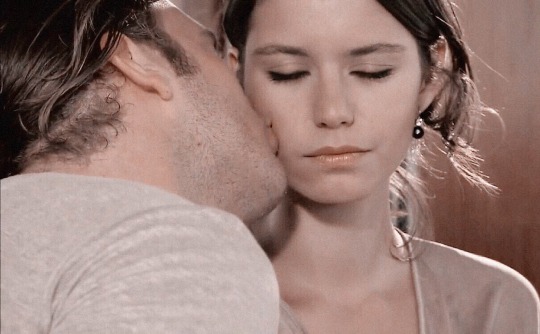#Aşk-ı Memnu
Text
Aşk-ı Memnu | JJK
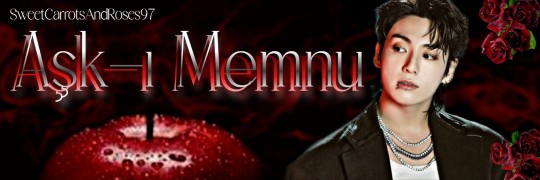
Pairing: non idol! Jungkook x fem! married! Reader
Summary: What is prohibited, it's desired the most. Or in which you tangle yourself in a forbidden love with Jeon Jungkook while being married to an older man. Yet it is also said that forbidden fruits taste the best.
Warnings: fluff, angst, forbidden love, food ingestion, cheating, age gap, mentions of sex, alcohol consumption (during dinner), lying, mentions of death, reader is described to be shorter than Jungkook, (let me know if I missed anything)
Word Count: 1.8k
~Prompt 3: Saying “I love you” for the first time
~Snowflakes divider by @samspenandsword
~Prompt list by @flightlessangelwings
A/N: This short story was highly inspired by the Turkish novel of the same name "Aşk-ı Memnu" which translates as "Forbidden Love" in English. Let me know what you thought of this controversial story in the comments!
You can listen to the series' music on Spotify to get into ambience as it helped me a lot to write this. Just search it with the same Turkish name. Happy reading everyone!

Love knows no boundaries. Love is untamable, like the sea. Like a flame. It exists, it consumes. It destroys.
It was cold outside, the night was heavy over the city. Snow was falling from the sky yet the house was warm. The clicking of the cutlery against the expensive china plates could be heard along with the flickering flames of the fireplace.
You sat next to your husband, the man clearly enjoying his dinner and you couldn't help but smile softly at his praises for the new cook.
"So, tell me Seokjin. How is your father?"
Asked your husband, a rich business man by the name of Lee Yong-su. Seokjin smiled against his glass of wine, he put it down and looked at your husband, the two men happily engaging in conversation.
"He's quite well, actually. His treatment is going smoothly and we expect a complete recovery by the end of February."
"Give him my regards when you see him, Seokjin."
The young businessman turned to look at you, bowing his head softly at you not minding at all the fact that you were younger than him.
"Of course, Mrs. Lee."
You smiled kindly at him before the conversation between Seokjin and your husband took place once more. You continued to enjoy your dinner, allowing your thoughts to wander for a bit.
The marriage with your husband had been really controversial given the age difference between you both and the fact that he already had two children with his other wife that you knew had passed away.
Nisun was the oldest. A seventeen year old girl who resented you for taking the place of her mother. Munwoo was the youngest, he was twelve and the innocent boy never ceased to claim that if you ever divorced his father, he'd marry you instead for he had always wanted to marry a beautiful woman when he was of age.
You found it cute whenever he mentioned something like that, only smiling at Munwoo before he got distracted with his videogames once more.
But those weren't the only people that lived in the mansion when you married your husband. There was someone else. A person you had met before you became Yong-su's wife.
Jeon Jungkook.
You knew that he was the only son of one of your husband's closest friends that had sadly died in a car accident when Jungkook was barely five years old. Yong-su had taken him under his wing, providing for him and taking care of him as if he were his own son.
Jungkook was also twenty-six, just like you. And that was the first motive so as to why you two clicked so easily. Yet that fact was the beginning of a web of lies and passion that you had never thought you’d be a part of.
He was also very handsome, a sleeve of tattoos adorned his right arm, his lip and eyebrow were pierced and his hair was rebellious like his soul. Jungkook was a really attractive man and, according to his own phrasing, you were the most beautiful woman he has ever seen.
Lust ruled your relationship with the son of your husband’s best friend. Desires of the body, flames of the heart. Feelings were never involved, or at least that was what was planned in the very beginning.
But to be honest, nothing was ever planned. This mess you were now tangled in started with a glance, continued with a kiss and ended with you in his bed. Sentiment was never supposed to happen. Everything was dominated by a mutual carnal infatuation.
You weren’t in love with your husband. The marriage had only been a great opportunity for you and your soft revenge on your cruel mother but Yong-su was deeply in love with you. To him, it didn’t matter the nearly twenty years age gap between you both. It didn’t matter that he had been married before. It didn’t matter he already had two children. He loved you, he cherished you, he wanted you almost in a fierceful way.
“Darling, are you alright? You aren’t usually this quiet during dinner.”
Looking at your right, you met the concerned gaze of your husband, you smiled slightly though not fully.
“I’m alright, I just have a headache.”
Yong-su frowned, you felt the eyes of everyone on you, even Jungkook’s gaze. It burned you to even know he was looking at you.
“Don’t worry about me, dearest.”
Silence filled the room after those words left your lips before soft conversations began to arise once more on the table. The children started talking about a new movie that was going to come out next week while your husband and Seokjin talked about business. Jungkook was still looking at you and you were able to read the concern in his dark eyes.
You smiled at him, ever so delicately and he nodded subtly. Taking in your silent reassurance as he resumed his dinner.
Butterflies flew in your stomach at his concern. At what you had seen in his eyes. Those hidden emotions behind his gaze. A dark galaxy you loved getting yourself lost in. The place where you found comfort during lonely nights and a refuge when your soul tormented you. Yet the fact that your love was forbidden only made you want it more. It attracted you more. You desired it more. You needed it more. Needed him. As if you were metal and Jungkook was your magnet. Like a forbidden fruit. Prohibited yet delicious.

“Are you alright?”
You knew that voice. Its raspiness did things to you that shouldn’t happen as a married woman. His deep voice always captivated you. You turned around, facing Jungkook. He stood in the kitchen’s doorway, leaning against the frame as his gaze pierced your own with intensity that a shiver ran down your spine.
"Yes, I just took a pill for the headache. Don't worry, Jungkook."
He frowned softly at your last sentence, uncrossing his arms as he walked towards you with his large steps. Your breath hitched in your throat when he stood in front of you a little too close for it to be proper.
"I always worry about you, (y/n)."
You swallowed, not knowing what to say. Nothing came to your mind. There were no words in your mouth to express, no thoughts in your mind to keep you busy.
"You matter to me more than you could imagine."
You looked aside, trying to break free from this chain he held you in. You took a deep breath, eyes focusing on your nearly empty glass of water that rested on the counter.
"Stop it, someone could hear us."
He took another step towards you, eyes never leaving your form as he gazed down at you.
"Uncle Yong-su is in his study with Kim Seokjin,"
His fingers grabbed your chin ever so softly, turning your head so that your eyes met his before he continued in a soft murmur.
"and the children are already upstairs."
His hand cupped your face while his thumb caressed your cheek in delicate touches. His dark eyes took you in; your beauty, your personality. Your essence.
Your hand rested atop his own. Even when the feeling of his skin against your own burned you with desire and adoration, you weren't allowed to show your sentiment freely.
"I don't want to risk it, Jungkook."
He smirked at your whispered words. Daring to take another step until your chests were almost touching. His warm and minty breath fanned your face and you, once more, lost yourself in his enchanting eyes that held your whole world.
"Risk what, (y/n)? Us? Are you that scared of my love for you to be known to the world?"
Your eyes widened at his words. You took a step back in pure instinct, forcing his hand to leave your cheek as you shook your head in silent motions of hidden despair.
"Because I love you, (y/n). I have for a while. And it only keeps growing in my heart."
You took a deep breath, trying to process everything that was leaving his mouth, wrapping your head around the fact that Jungkook was in love with you. If anything, it complicated things even more yet that didn't mean you craved it any less.
"You can't. Jungkook, you can't love me."
His hands were on your shoulders the next second making a soundless gasp leave your lips. His eyes bore into yours like never before that you nearly felt his soul touch your own.
"But I do. And I do not regret it."
You stood in silence, never breaking eye contact with him. Why now? Why did he have to say such a thing now?
"If you do not love me, say it. Say it and nothing left my mouth. Say it and I'll try to stop."
But how could you say that you didn't love him when your heart beats for him and only him? How could you tell such a lie when you loved him more than your life?
"Jungkook, I-"
"Love, are you there?"
The voice of your husband was heard from around the corner. Your eyes widened in fear and Jungkook put a finger over his lips, signalling you to stay quiet as he went to hide behind a wall, opposite from the kitchen's entrance.
You turned around in time to face your husband crossing the doorway with a soft smile on his lips.
"Yes, I just took a pill for my headache."
Yong-su frowned and walked over to you, eyes searching on your own with concern.
"Are you alright? I need you to sign some documents but if you are not feeling right you can do it later."
Your eyes momentarily looked at where Jungkook was hiding before you shook your head with a smile.
"It's alright, I can do it now."
Yong-su nodded, walking out of the kitchen with you behind him. But just as you were about to leave the room, you turned to look back only to spot Jungkook peeking out from around the wall upon hearing your fading footsteps.
With your heart skipping a beat, you sent him a subtle nod. The trace of a smile over your lips before you disappeared behind the wall.
And it was in that moment that he smiled to himself, feeling his heart beating wildly in his chest upon the silent confirmation of your love for him.
It didn't matter if it was prohibited, that it was a sin. That you were betraying your husband with Jungkook. For you were his forbidden fruit he should not even gaze at but your essence was addictive he couldn't think to stop himself. Not now, not ever, because love knows no boundaries. Love is untamable, like the sea. Like a flame. It exists, it consumes. It destroys.

December/15/2023
☕Caffeinate me so I can keep on writing! ☕
#jungkook#bts#bts fic#jungkook x reader#jeon jungkook#love#bts fanfic#jeon jungkook x reader#kim seokjin#bts jungkook#forbidden love#Aşk-ı Memnu#aşk ı memnu#reader insert#winter event 2023#sweetcarrotsandroses97#jungkook fluff#jungkook angst#angst
108 notes
·
View notes
Text



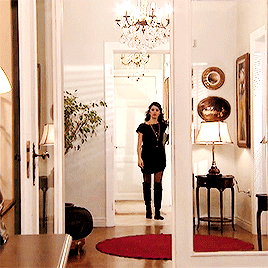
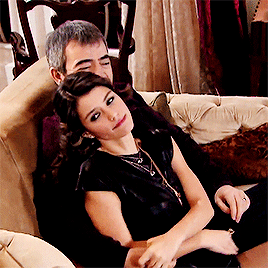
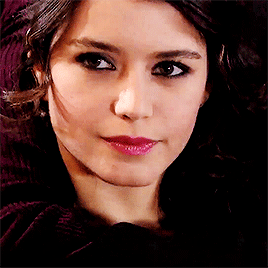
#turkishedit#bihter#beren saat#aşk-ı memnu#berensaatedit#beren saat gifs#turkish series#t#ep 59#myedit#✨HER✨😩🥰💕💞💓💗💖💘💝#the last 2 r so 💀 shes horrible LMFAOOOOOSKDJSKSKS#when ur boyfriend goes out w his girlfriend so u make him jealous w ur husband 🤪#girl theres so much wrong w u i am obsessed w u.............#this time of the year is always so perfect for a rewatch november and december hit so different w this show <3
57 notes
·
View notes
Text

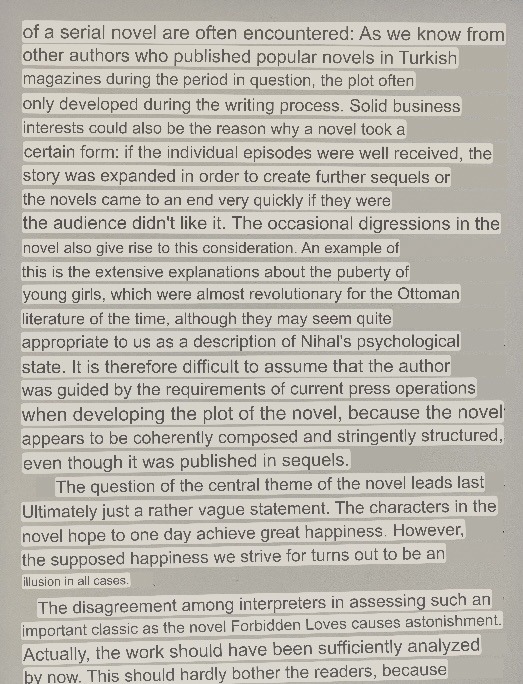
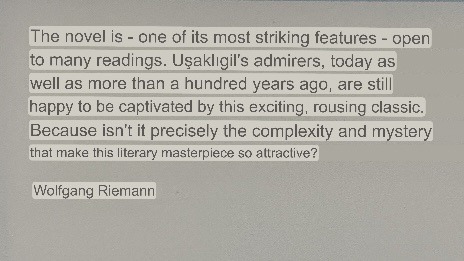
From the Afterword of the German translation of Aşk-ı Memnu
(It is Google Translate but I think the general meaning is apparent).
But exactly the novel is so unexpectedly open to interpretation and that’s part of what makes it great.
34 notes
·
View notes
Text
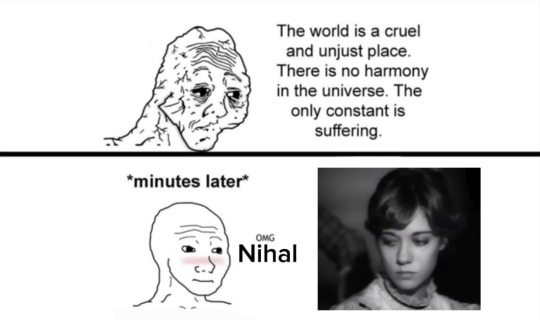
It do be like that sometimes in the middle of the night
11 notes
·
View notes
Note
What thoughts do you have on Nihal as a passive character versus Bihter as an active one?
I've been putting off answering this because I'm honestly a little unsure.
It's true that Nihal doesn't outwardly become active in the plot, but her internal world is hardly that of a passive character. In a text that is so psychological, Nihal's active internal rebellion against the changes Bihter brings may be more important than her external passivity.
I might also challenge that external passivity. When Nihal does affect the plot, it is usually by illness or emotion that has 'happened' to her. But has it simply 'happened'? She is highly in control of her own internal world:
Determining her own innocence
Controlled repression
Finally (but not exhaustively), there is her setting herself out to die at the close of the novel, determining to be ill to make others sorry and mysteriously fulfilling this through her faint.
Her psychological self control is so complete that it is barely conscious.
Nihal's passivity is almost calculated— but then it seems cruel to construe a teenage girl's actions and thoughts as such.
Bihter is ostensibly active in her choices, but her submission to convention, even the conventions of unconvention, could render her a passive character. Of course the young wife seeks love in another; of course she makes changes to the household; of course she seeks to protect her secret; of course she determines to escape even to death. In fact, as Nihal gains internal power, Bihter seems to lose it, ceasing to resist the evil stepmother convention that she has thus far avoided to the best of her abilities.
Both these women are strong agents in the novel, over either internal or external worlds. What does interest me is the ostensible passivity of Adnan Bey, oblivious or ignoring of most of the drama, but really the only character with complete agency— the agency to determine the marriage in the first place, to put Bihter and Behlül in fear of their lives, to employ and dismiss servants, to decide the manner of Nihal's upbringing.
He is the most powerful agent in the text and yet he so rarely exerts his power that it is easy to forget how much of the novel's events are caused by his activities or passivities. He married Bihter. He raised Nihal in that insular environment (Mlle de Courton cannot fully hold the blame— he employed her). He then insidiously fades into the background so that Nihal and the reader may blame everyone but him. I have not often enough thought about the problematic nature of Adnan Bey.
25 notes
·
View notes
Text
aslında her birimizin senden bir parça taşıyabileceğini, yaşadığın hüzünleri yaşayabileceğini öğrendik geçen 13 yılda yaş aldıkça. bu 24 haziran’da da bir yanımız buruk.
güzellik, zarafet ve tutkunun simgesi bihterim; gittiğin yerde ruhun huzur bulmuştur umarım❤️🩹
8 notes
·
View notes
Text
This blog is dedicated to the future upcoming podcast Aşk-ı Memnu Podcast, hopefully to be established in August. Inspired by @littlewomenpodcast . You can ask any questions you have about the book here. (You can ask about its adaptations too but only in relation to the book).
13 notes
·
View notes
Text
this is REAL pain REAL acting REAL writing REAL tragedy REAL mother-daughter complexity REAL talent wtf do you guys know about it ?!??!???
#BIHTER MY LOVE I WOULD HAVE LOVED YOU ..... I WOULD HAVE SAVED YOU 😭😭😭😭😭😭😭😭😭😭😭😭😭😭😭😭😭😭😭😭😭😭😭😭😭😭😭😭😭😭#i feel like death whenever i see her i love her so much literally every single person around her failed her oh my god im gonna be sick#bakma bana#aşk-ı memnu
4 notes
·
View notes
Text
AMOW Winter Whumperland 2022
The NutCracker
Prompt: forced to perform (more forcing self to perform)
Series: Aşk-ı Memnu bölüm 72 @amonthofwhump






That's a wrap for the 12 days of Christmas for Winter Whumperland 2022!!!
#Aşk-ı Memnu#başır#whump#sad ending#coughing up blood#coughing#shortness of breath#sick#terminal#amow winter whumperland 2022#amow#forced to perform#the nutcracker
18 notes
·
View notes
Text
Fallara da Aşk olsun yine sen çıkacaksan...
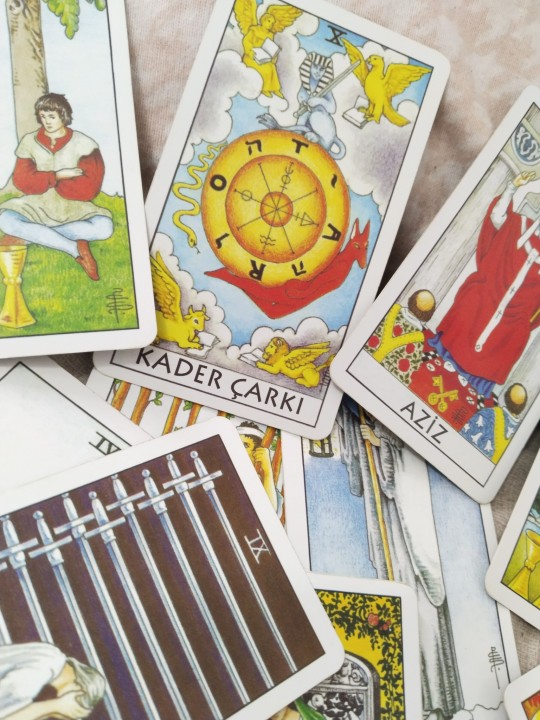
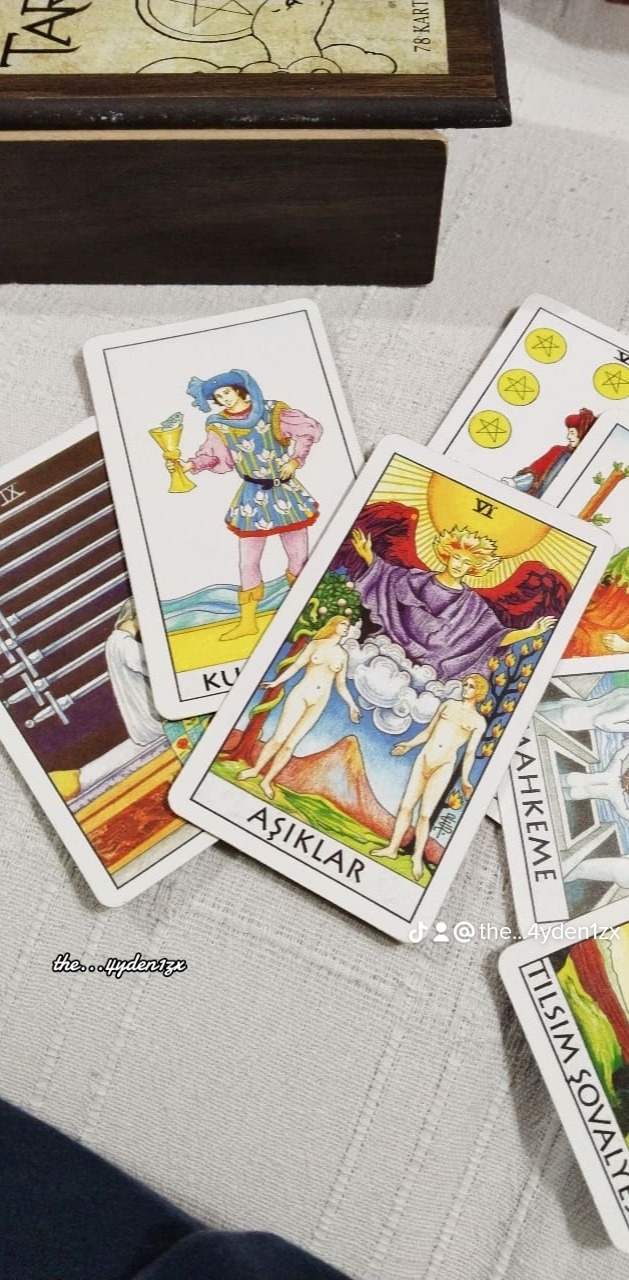
10 notes
·
View notes
Text



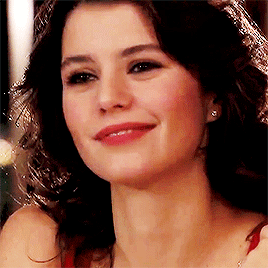

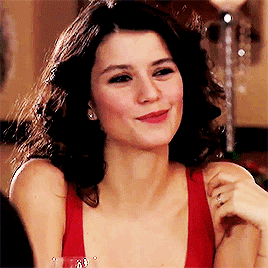
#turkishedit#bihter#beren saat#aşk-ı memnu#berensaatedit#beren saat gifs#turkish series#t#ep 60#myedit#my babygirl vibing and mothering and living her best life love that for her <3#the drama after this ep is so spicyyy but also everything goes to shit from there The Downfall era starts dkjsdjksjdksjs rip...............
18 notes
·
View notes
Text
The thing about female characters is, when their actions are truly analyzed they are frequently at least as complex as their male counterparts in the same work of fiction but the works they are in are less likely to hold up a neon sign saying “THIS CHARACTER IS COMPLEX” regarding them whereas male characters’, especially anti-heroes’, complexity tend to be a lot more self-congratulatory. Readers and viewers are also more willing to consider male characters complex.
Yes this applies all across the board, from female characters in best pieces of fiction ever written to the ones in the trashiest ones.
Like Nihal is a fairly complex character, almost nothing about her is simple, from the way she suppresses and manipulates her jealousy of her brother to her relationship with her fiancé. But no reader regards her as especially complex because she is a teenage girl who acts her age.
For a female character to be considered even remotely complex she has to die or have illicit sex (frequently both).
134 notes
·
View notes
Text
Summary of Aşk-ı Memnu I found on storygraph:
"Bihter hepsini unutmak isteyerek, kandili hala bütün bütüne yakmadığı için birtakım karartılar yansıtan aynanın karşısına geçiyor, çıplak gövdesine bakıyor, nergisçe bir tutumla hazdan sarsılıyordu. Başkaları ne düşünürdü bilmem, ama bu, kendi kendine tatmine giden yol, Bihter'i büsbütün yalnızlıkla sarıp sarmalardı. Hazlarda söze dökülemeyecek uçurumlar hissederdim. Romancı, Bihter için, 'Evet bu vücudu seviyor...' diye yazıyordu. Genç kadın ayna karşısındaydı, vücuduna sevgiler, vurgunluklar duyuyordu. Gülümsüyor, aynadaki aksinden sevda umuyordu.
(...) Çünkü Bihter, hayatında bundan böyle aşkların karşılıksız kalacağını, daha da yalnızlıklarla dolup taşacağını, kendisinden o kadar yaşlı Adnan Bey'in ne aşka, ne ihtirasa yanıt verebileceğini sezinlemişti. İşlemeli, dantelalı yatak örtüleri, bu gece ve her gece, Bihter'e bomboş süsler, düzmece incelikler sunacak, ama Bihter süslü döşeğinde hep ihtirasların, genç tenlerin hayalini kuracaktı..."
...It's the mirror scene. I haven't payed much attention to this scene the first time I read the book but I want to examine it now, since it seems this is taken from the Turkish version of the book.
Bihter sits in her dark bedroom, admiring her body and her image. Looking at herself naked in the mirror fills her body with indescribable sense of pleasure.
'Yes, she loves this body...' The young woman was in front of the mirror, feeling love and admiration for her body. She was smiling and hoping for love from her reflection in the mirror.
Bihter soon realizes that her much older husband cannot give her love nor passion, not the kind that she desired every night. The love she feels towards her body is of narcissistic nature. She loves her own body and hopes to be loved back by her own reflection. The reason for that is because Bihter is a lonely woman, who despite marrying an older man, secretly dreams of younger skin on her decorated bed. She seeks for love that will fill the void of loneliness.
When she found herself in her room alone in the dark with that thing that resembled a delicate toy, she trembled. Her strength gave away suddenly. Really, was she going to do this? So young, so beautiful, without yet having had a chance to live.
She wanted to light her candle first. She would not die in the dark. To die without seeing herself one last time... So everything would end after she was dead, she would end, never to live again? She would a shadow in a darkness, an endless darkness?
Bihter's decision to kill herself wasn't something that immediately crossed her mind. Seeing Beşir watching her with vicious pleasure made her realize that everyone was going look at her the same way. She couldn't live under such foul gazes and thought that death was the only solution.
Oh! She would not be able to open it, she would not be able to go out to face that man, and in her hand that delicate, little toy's black muzzle kept turning, bending, seeking her in the dark, and saying in a persuasive voice, 'yes, young, beautiful, delicious woman, this is the only thing for you.'
It's as if the gun had a mind of its own, that had threatened to take away Bihter's youth with its persuasive voice. Bihter's whole mind and body was trembling with fear, trying to overpower the gun, to shake it off so she would be able to live. Bihter had started to hesitate in her hasty decision to end her life. She's a young and beautiful woman maybe she still had a chance to redeem herself?
I think there might've been a chance for Bihter to survive if Adnan bey hadn't tried to forcefully break the door down. She was scared of what he would've done to her which lead to her ultimate death.
#aşk-ı memnu#bihter#character study#tragedy#there's spoilers for chapter 22 so if you dont want to get spoiled i suggest you avoid this#i say this because I've seen some people haven't read the book yet#ik this was about the mirror scene but i went a little more in depth
5 notes
·
View notes
Text
Aşk-ı Memnu: Attempting a Pre-lapsarian Reading
@faintingheroine I’m so so glad that you introduced me to this book, and a lot of this analysis will be heavily influenced by you and your thoughts. We discussed pre-lapsarian readings quite a lot, but I wanted to see if I could give it a proper treatment. The translation I’m using can be found here.
The main concept of the argument hinges on the names of Adnan Bey and Firdevs Hanım: Adnan’s name meaning ‘the one who achieves immortality in heaven/Eden’ and Firdevs’ name meaning ‘Heaven’/’Paradise’.
Aşk-ı Memnu means ‘Forbidden Love’, and it’s possible to view love itself as the forbidden fruit of this Fall, or rather, collection of Falls. In Adam and Eve’s original tale, Adam’s love for Eve is sometimes viewed as the cause of his Fall, and he is blamed for being seduced, transferring agency to him rather than Eve.
To take the story first from Bihter’s perspective, Adnan is her Eden. She cannot create herself as an entire woman until she has escaped from her mother, but once she is in Eden, she is dissatisfied; ‘she want[s] such a love that it would leave an intoxicating faintness in her soul’. She feels the knowledge of love calling to her and Falls first not to Behlül (the one who laughs, but also not dissimilar in sound to Belial, another name for Satan— I cannot discover whether this tracks into Islam and the Turkish language, so I may be wrong to suggest this one), but to herself, when she makes that discovery of what love is:
Suddenly, in this semi-dark room, amid the slumbering silence of this house, as the tinted glass of the lamp above her head rained colourful shadows and seemed to enliven the furniture around her with an unfelt breeze, she shivered to find herself so naked, and feared the loneliness. No, this was such an emotion that it was closer to shame than to fear. She was ashamed, as if she had done a great wrong, ashamed that she had sinned unthinkingly against her virtue. She had fallen into the arms of an unknown lover who entered the privacy of her chamber secretly, and her first sin of passion had been committed in an irresistible nervous trembling. (Chapter 8)
Note how the room is ‘semi’ dark, how Bihter has been standing in the window, occupying liminal spaces that could represent her in-between state, the precipice of the Fall.
Bihter’s second Fall is more traditional. Behlül becomes a tempter, as he has tried and failed with Peyker, but unlike Satan, he lacks magnitude. He is opportunistic, casual. His Falls are more like flights of fancy and his temptations are boyish, almost innocent. They are in the room that serves as an entryway to his bedroom, neither completely sequestered in his private quarters, nor in the general space of the house and much of the action between them takes place in this in-between space. ‘[T]he red eyes of the stove were lowering their eyelashes’; ‘white snowflakes were falling’ (emphasis mine); Bihter is Falling.
The second Fallen figure I would like to consider is Behlül himself. Behlül is not someone who Falls once or twice, but someone who seems doomed to Fall over and over again. He seems to Fall for almost every woman he meets, but his two particular Falls are for Bihter and Nihal.
In a second Behlül had gone so far that it was now no longer possible to turn back (Chapter 10)
At last, the little love stories of his life had been closed, now a long love story, with all its passions, desires, fevers, happinesses, had begun. He was finding all the old memories petty, lowly. They had become like rough drafts that had been scribbled over as a child, which one, embarrassed, wanted to tear out and throw away, to burn to ashes. Now he was going to write a perfect chapter of his love life, and after this chapter, he could end his love story. (Chapter 11)
He is insistent on the uniqueness of this, the irreversible romance of each Falling, yet his feelings for Nihal are almost identical:
Before this tableau of the old dream, he was thinking of his own life, of the life whose final page would perhaps be closed tonight, with one word from Nihal, of the life that would resemble just this view, turned into an abandoned ruin with its faded lines, its washed-out planes. Already that life seemed to have grown distant through an interval of long years; all those faces, even Bihter, all those memories belonging to yesterday, had been buried in the ruins of that old dream, far away, beyond such a wide sea. Now beside him, a fresh flower of hope was promising him the horizon of a new life with its shy glances. (Chapter 19)
He does not learn; after the close of the novel, it seems he may well have disappeared from Adnan Bey’s Eden to Fall again. He is a man; he may do so.
Last of the main three, but certainly not least, Nihal’s Fall is more complex and more gradual, less borne of single instants than Bihter and Behlül’s. The entire narrative encompasses her Fall, a Fall of a thousand moments. If Adnan Bey is Eden, then so too is Nihal’s childhood and his fatherly state. The more Nihal learns of love— at the wedding (noticeably we follow Nihal and the bride in that strange part of the day where the wedding has begun but the marriage has not, that precipice of Fall), by observing Bihter, by wearing sheets, by releasing Bülent, whose removal from the room is an acknowledgement of their adult genders— the more she edges towards her Fall. Even when she consents to marry Behlül, the Fall is not complete. It is not complete until she literally falls down those liminal stairs and lands at the bottom with Behlül and Bihter, the Fallen. She knows what love is; she knows what love can do. Adnan Bey carries her back upstairs, reclaims her for Eden, but this cannot last. The novel closes uneasily, ‘ a fear [...] passing through her mind’ as Nihal knows that Adnan Bey cannot live forever and she must one day leave Eden. She seems almost to resolve on death to escape passage into the next stage of life; a key parallel to Bihter.
I turn now to Firdevs. Is she not the epitome of the Fallen Woman? She Fell before the tale began, she seems determined to keep Falling until it kills her. Yet she is Paradise. What Paradise can this woman represent?
If my understanding is correct, Halit Ziya was familiar with Western traditions; likely familiar with Felix Culpa or the happy mistake. This is a view which suggests that the Fall is not actually a bad thing, but rather the only way humans could truly understand good and evil in the way God does and fulfil their destinies.
Firdevs has lived with her mistakes and she suffers for them, a kind of purgatory or barzakh. Perhaps she will attain Paradise because she is willing to live with herself in a way that Bihter and Nihal are not. It’s interesting that Behlül is the one most willing to sympathise with Firdevs; he is the one who leaves Eden and lives, the one who seems most likely to follow her path in life.
Bihter and Nihal will not wait for the Paradise of Heaven; they will not wait to become Firdevs. The Fall is too much for them and the loss of Eden too terrifying.
Beşir’s position in this reading is particularly interesting. He is the one who brings revelation, ‘the one who brings good news’. Ostensibly, the news is hardly good, but it is truth. He becomes almost a stand in for the God of Adnan Bey’s Eden. He even potentially redeems Nihal from her Fall, a Christ figure, sacrificed for the sins of the others.
Ultimately, it is not simply love that is forbidden, but knowledge of what it is to love. Nihal struggles against this knowledge and in the tragic conclusion, finally Falls. She can pretend to be firmly in Eden at the close of the novel but her knowledge is inescapable. She forbids herself from romantic love, tries to evade it, but the Fall must happen, and she cannot stall it forever.
#Aşk-ı Memnu#nihal#bihter#behlül#firdevs#adnan bey#halit ziya uşaklıgil#pre-lapsarian reading#or mid-lapsarian rather
29 notes
·
View notes
Text
Aşk-ı Memnu Characters Favorite Shakespeare Plays
Asked by @faintingheroine
Nihal: Hamlet and Cymbeline
Bihter: Troilus and Cressida
Firdevs: Anthony and Cleopatra
Peyker: The Merry Wives of Windsor and Measure for Measure
Nihat Bey: The Merchant of Venice
Mademoiselle de Courton: Richard II
Adnan Bey: A Midsummer Night’s Dream
Behlul: Love’s Labours Lost and Taming of the Shrew
Bulent: Henry V
Beşir: The Tempest
#tumblr mutuals#tagged#faintingheroine#literature#shakespeare#ask i memnu#aşk-ı memnu#halit ziya uşaklıgil#bardolatry
20 notes
·
View notes

